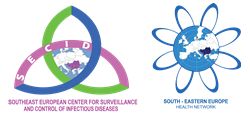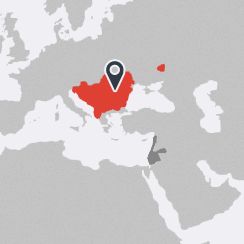The South East European Center of Infectious Diseases Surveillance and Control (SECID) was established in February 2013 as an integral part of the Regional Health Development Center of Surveillance and Control of Infectious Diseases (RHDC – CDC) in Tirana, Albania, and Southeast European Health Network (SEEHN) its parent organization.
SECID works closely with the respective national authorities in the region, engaging in routine surveillance and reporting, specimen processing and supporting their activities based on technical capacities.
SECID aims to develop and support projects of public interest and health system development initiatives to improve the surveillance and control of communicable diseases and strengthen health security in the countries of the region and beyond. Since its inception, the strong nature of the cooperation within SECID has enabled the network to be a reliable partner and supporter for all donors and partners.
Mission and Vision
- Improvement and building of regional and cross-border capacities, adding new emphases on cross-border work and outputs.
- Building, promoting and implementing regional initiatives related to ‘One Health’ and ‘Health for All’ policies.
- Advocacy for policy implementation, change and funding.
- Creation of sustainable initiatives and collaboration with networks and other agencies, acting as an intermediary to link experts to policy makers and funders at all levels.
- Innovation promotion and testing in the field. Data and soft information sharing.
Pandemic preparedness and respiratory virus surveillance
SECID has a longstanding collaboration with the Southeast European countries in the field of pandemic preparedness and response, influenza surveillance and recently COVID-19 surveillance. SECID’s main project is Enhancing influenza, SARS-CoV-2 and other viral respiratory pathogens through integration of all existing surveillance systems and using a ‘one health surveillance approach’. The project combines a regional approach focused on joint trainings, prioritization, regional meetings, surveillance evaluation, influenza program management, threshold measurement and sharing best practices, problems, and data from country specific activities.
SECID assisted by CDC has played a key role in maintaining the influenza and COVID -19 surveillance network in SEE countries during the pandemic, and in collaboration with national public health authorities has helped to improve influenza and COVID-19 surveillance, testing and diagnostic capacities and establishing and maintaining National Influenza Centers. SECID has also improved health information systems, databases, international level reporting and the strengthening of human and animal interface collaboration as well as improving pandemic preparedness through revising and updating Pandemic Preparedness Plans.
For more information visit our facebook and instagram pages.


